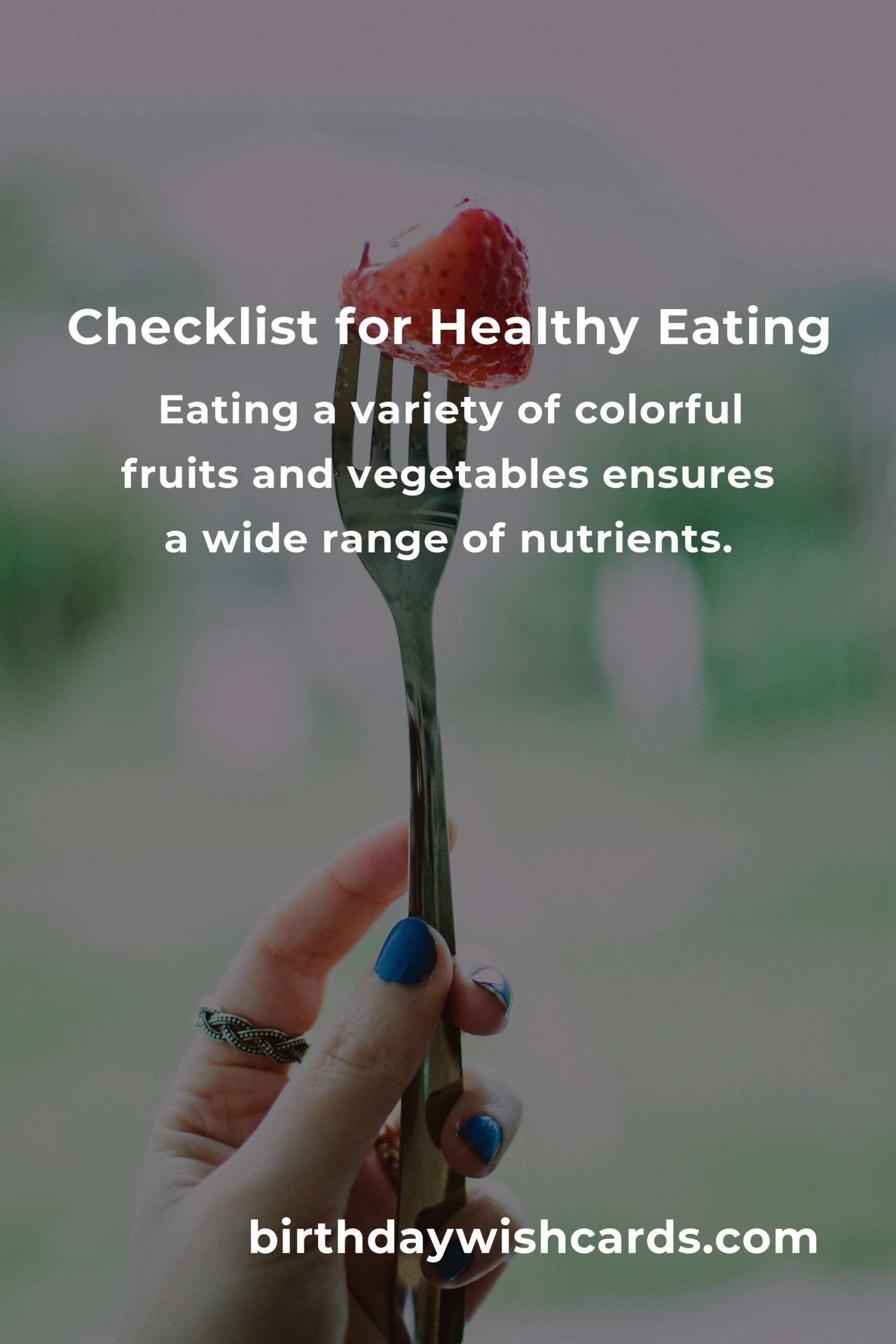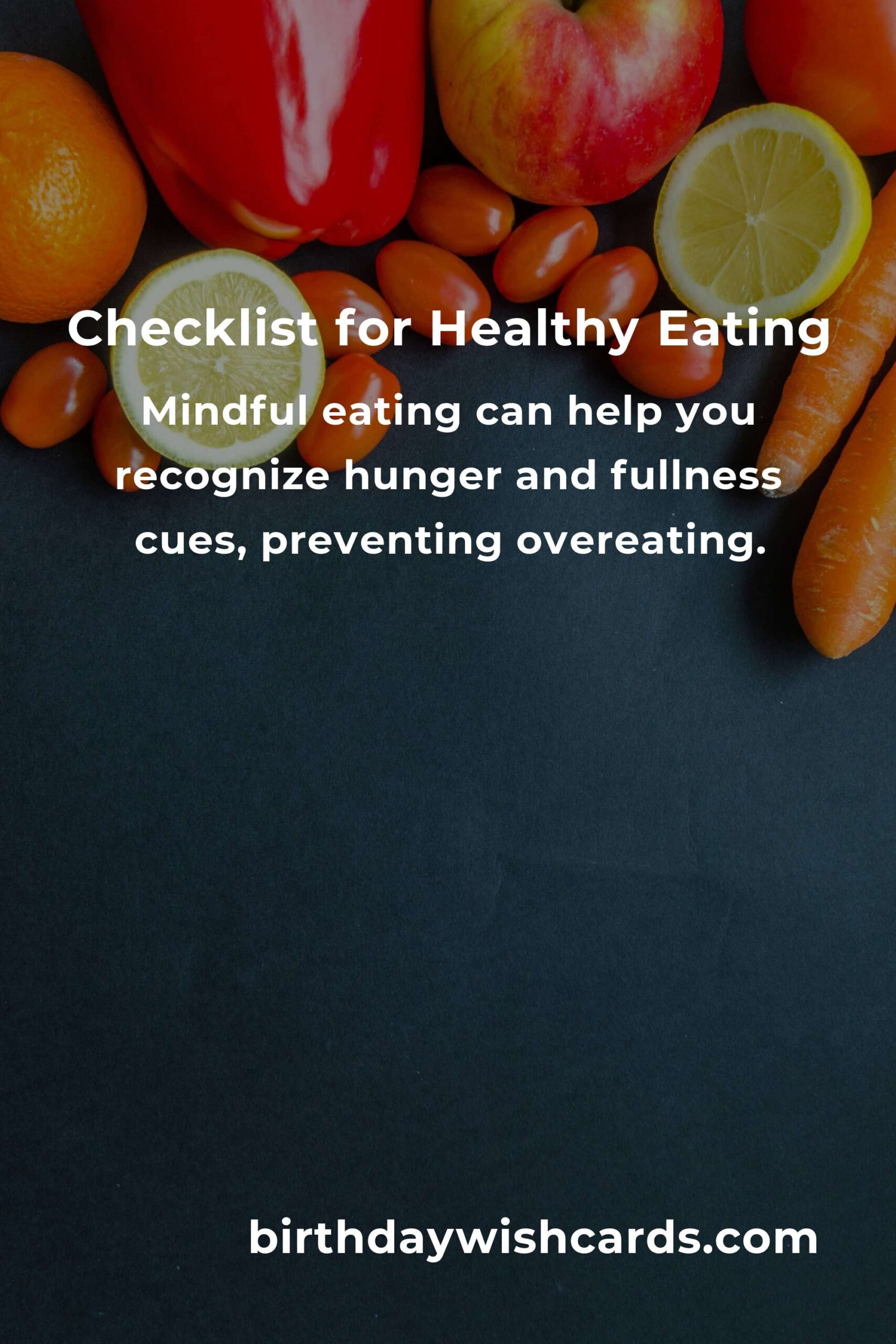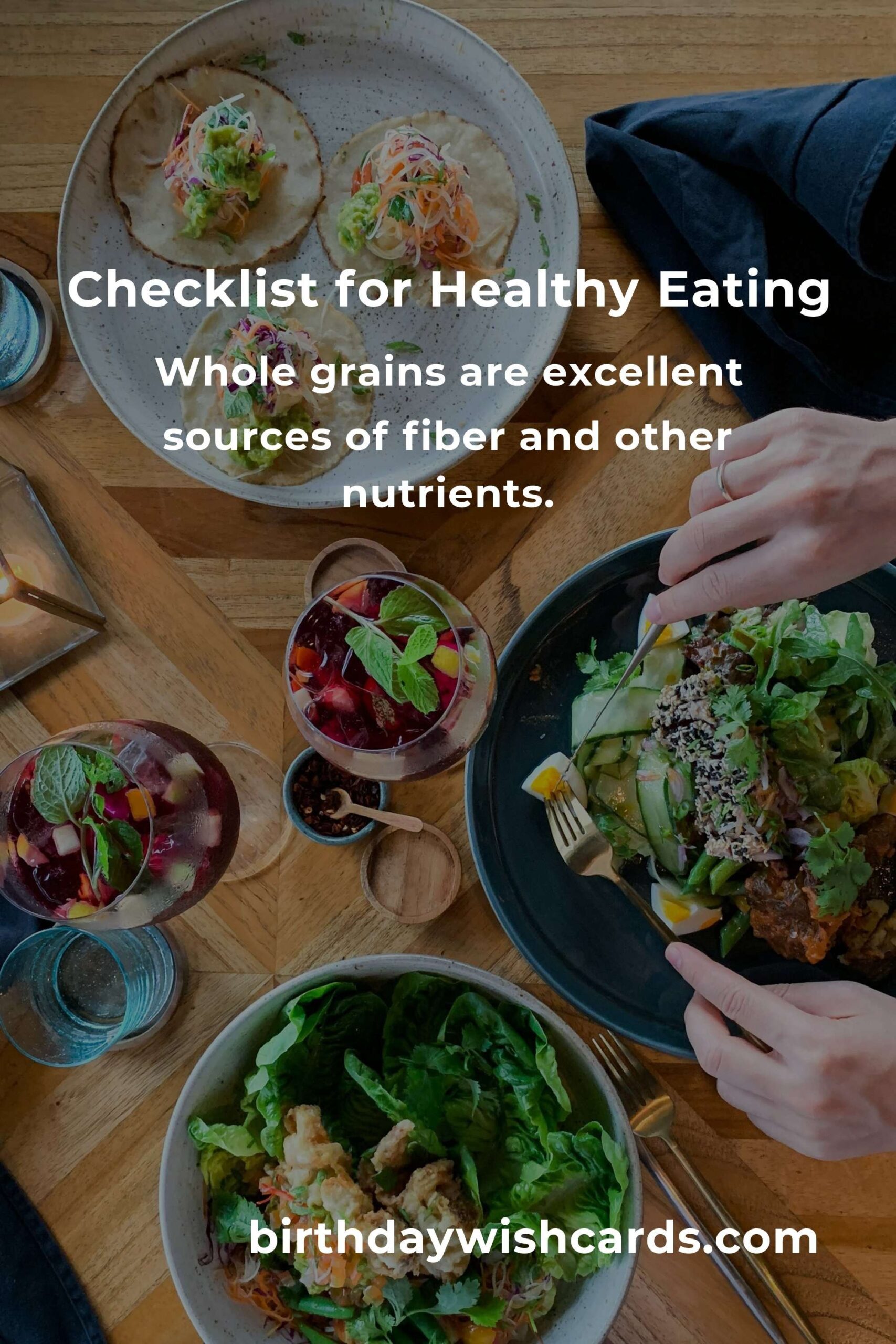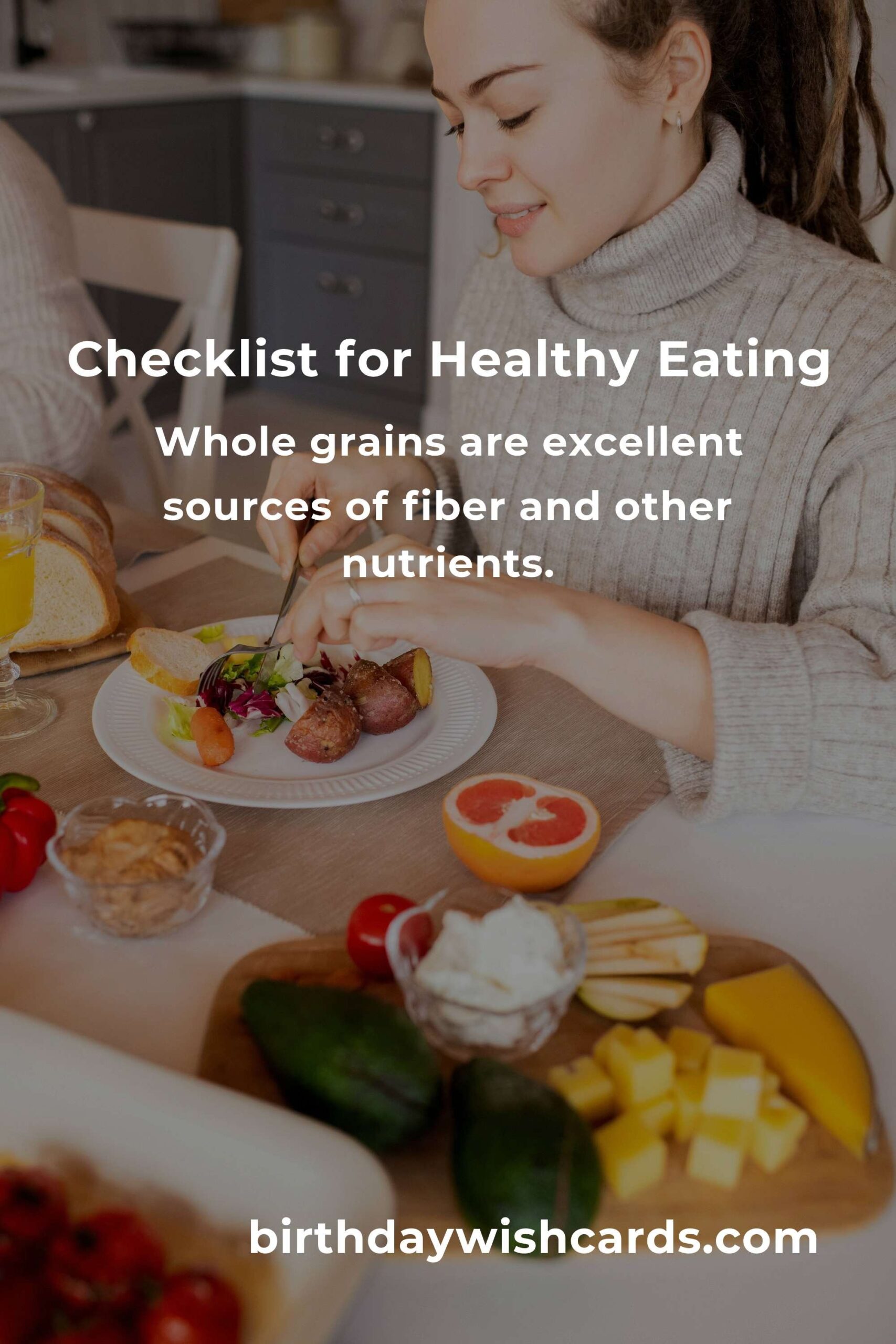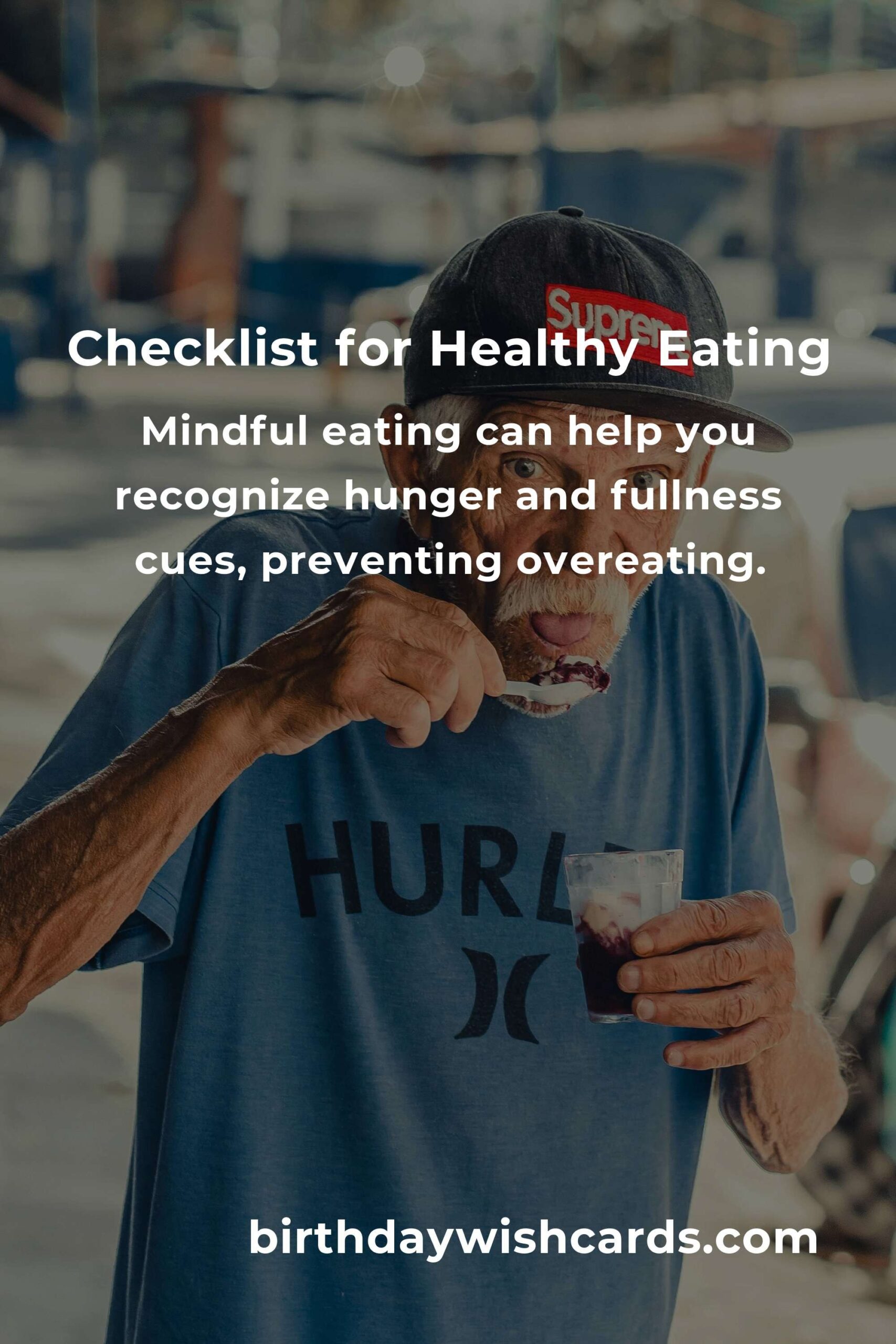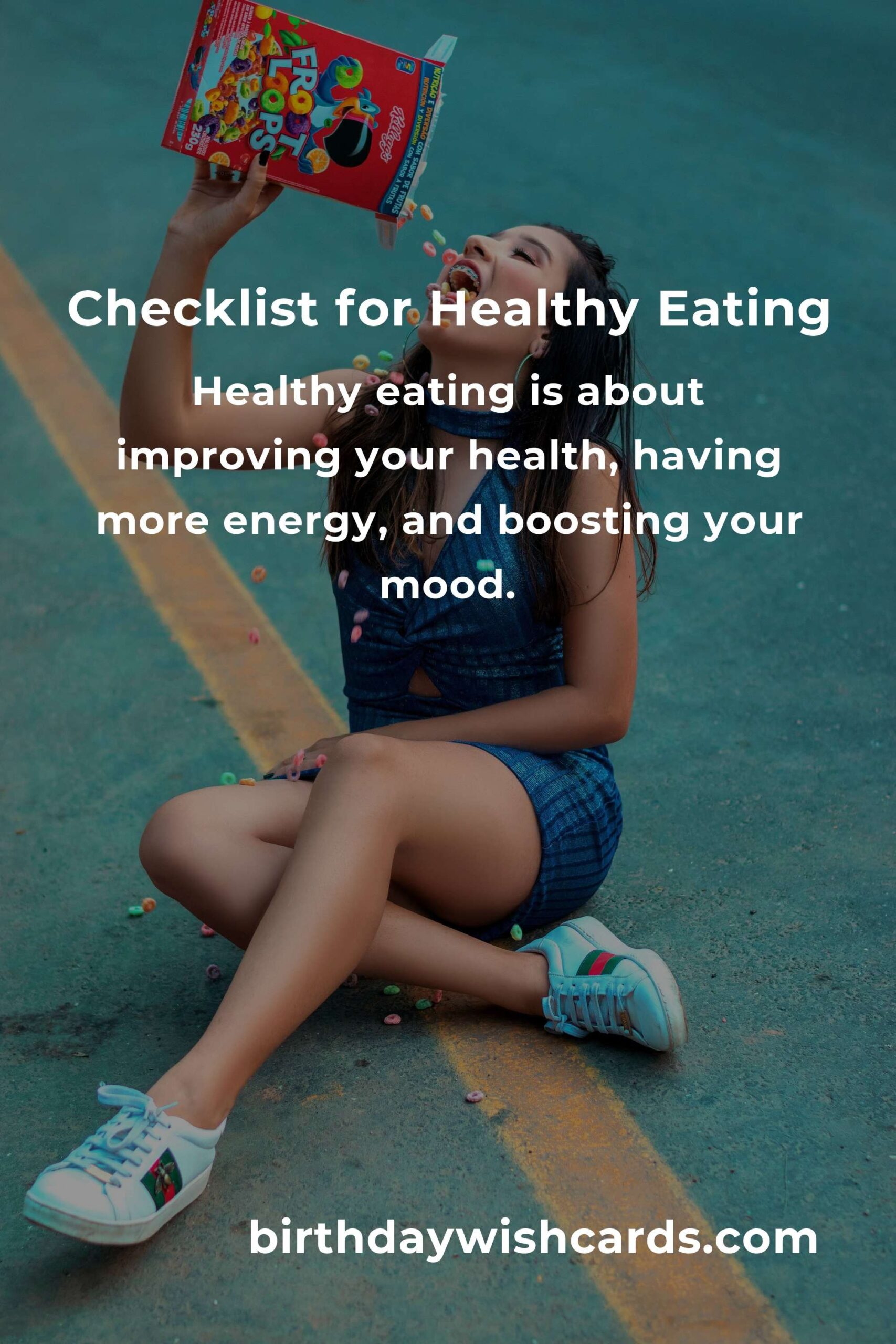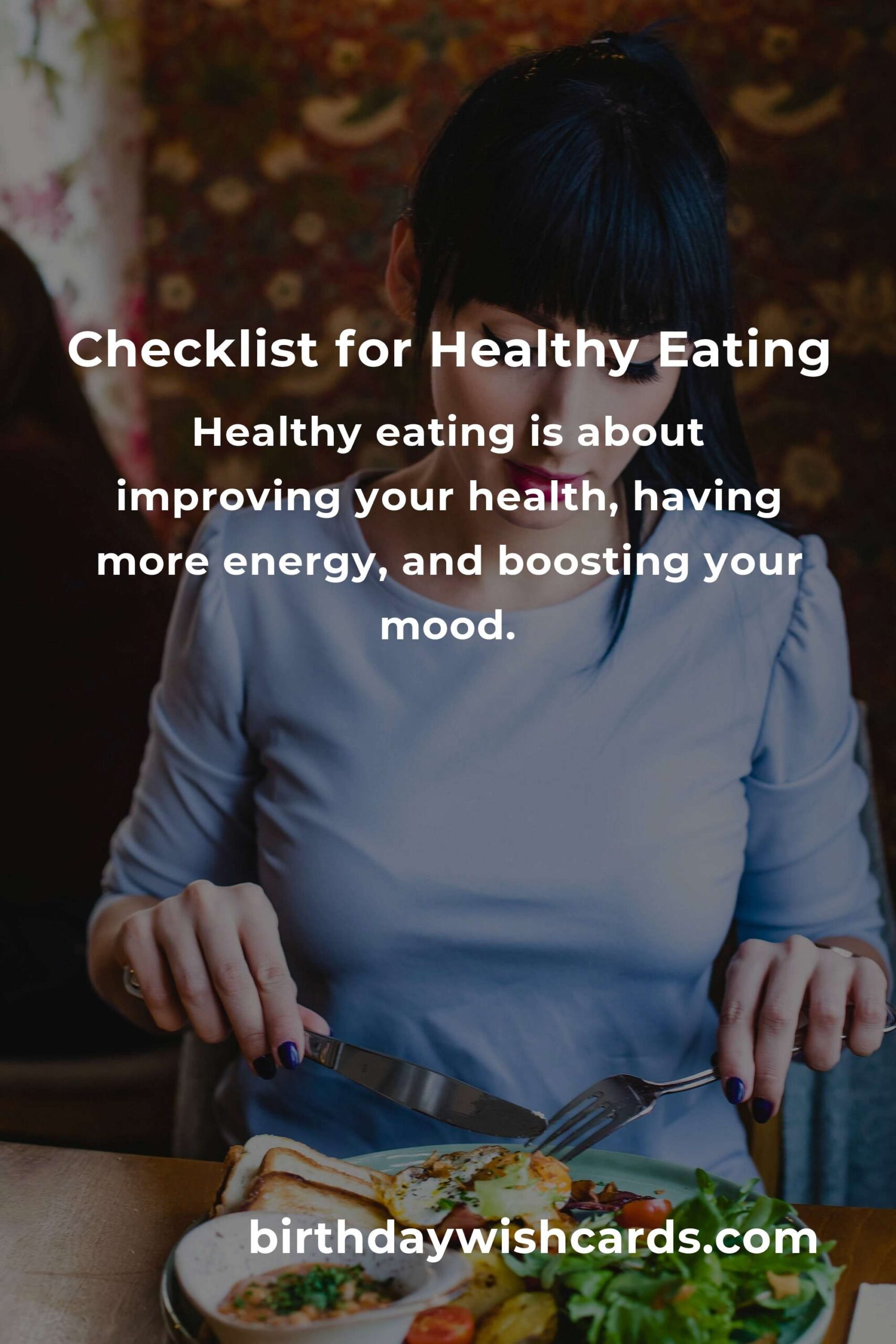
Healthy eating is not just about strict dietary limitations, staying unrealistically thin, or depriving yourself of the foods you love. Rather, it’s about improving your health, having more energy, and boosting your mood. Here’s a complete checklist to help you embark on a journey towards healthier eating habits.
Understand the Basics of Healthy Eating
Before diving into specific strategies, it’s essential to understand what a healthy diet looks like. It consists of a variety of foods that provide the nutrients you need to maintain your health, feel good, and have energy.
Plan Your Meals
Meal planning is a crucial step in maintaining a healthy diet. It helps you avoid last-minute junk food choices and ensures you have all the necessary ingredients on hand.
- Decide on your meals for the week.
- Create a shopping list based on your meal plan.
- Prep ingredients in advance to save time during the week.
Incorporate a Rainbow of Fruits and Vegetables
Eating a variety of colorful fruits and vegetables ensures you get a wide range of nutrients. Aim to include at least five servings of fruits and vegetables in your diet each day.
Choose Whole Grains
Whole grains are excellent sources of fiber and other nutrients that play a role in regulating blood pressure and heart health. Swap refined grains for whole grains such as whole wheat bread, brown rice, and oatmeal.
Include Lean Protein Sources
Protein is essential for building and repairing tissues. Opt for lean protein sources such as fish, poultry, beans, and nuts. Limit red meat and avoid processed meats.
Stay Hydrated
Drinking plenty of water is vital for maintaining good health. Water helps to regulate body temperature, transport nutrients, and eliminate waste.
Limit Sugar and Salt Intake
Consuming too much sugar and salt can lead to health problems such as obesity and high blood pressure. Be mindful of the amount of sugar and salt in your diet.
Practice Mindful Eating
Mindful eating is about being aware of what you are eating and enjoying your food without distractions. This practice can help you recognize hunger and fullness cues, preventing overeating.
Stay Consistent
Consistency is key to maintaining healthy eating habits. It’s okay to have the occasional treat, but make sure it doesn’t become a regular part of your diet.
Seek Professional Guidance
If you feel overwhelmed, a nutritionist or dietitian can provide personalized advice and support to help you achieve your healthy eating goals.
By following this checklist, you can develop healthier eating habits that are sustainable in the long run. Remember, healthy eating is not about perfection but making better choices most of the time.
Healthy eating is about improving your health, having more energy, and boosting your mood. Meal planning helps you avoid last-minute junk food choices. Eating a variety of colorful fruits and vegetables ensures a wide range of nutrients. Whole grains are excellent sources of fiber and other nutrients. Mindful eating can help you recognize hunger and fullness cues, preventing overeating.
#HealthyEating #Nutrition #Wellness #DietTips #HealthyLifestyle


